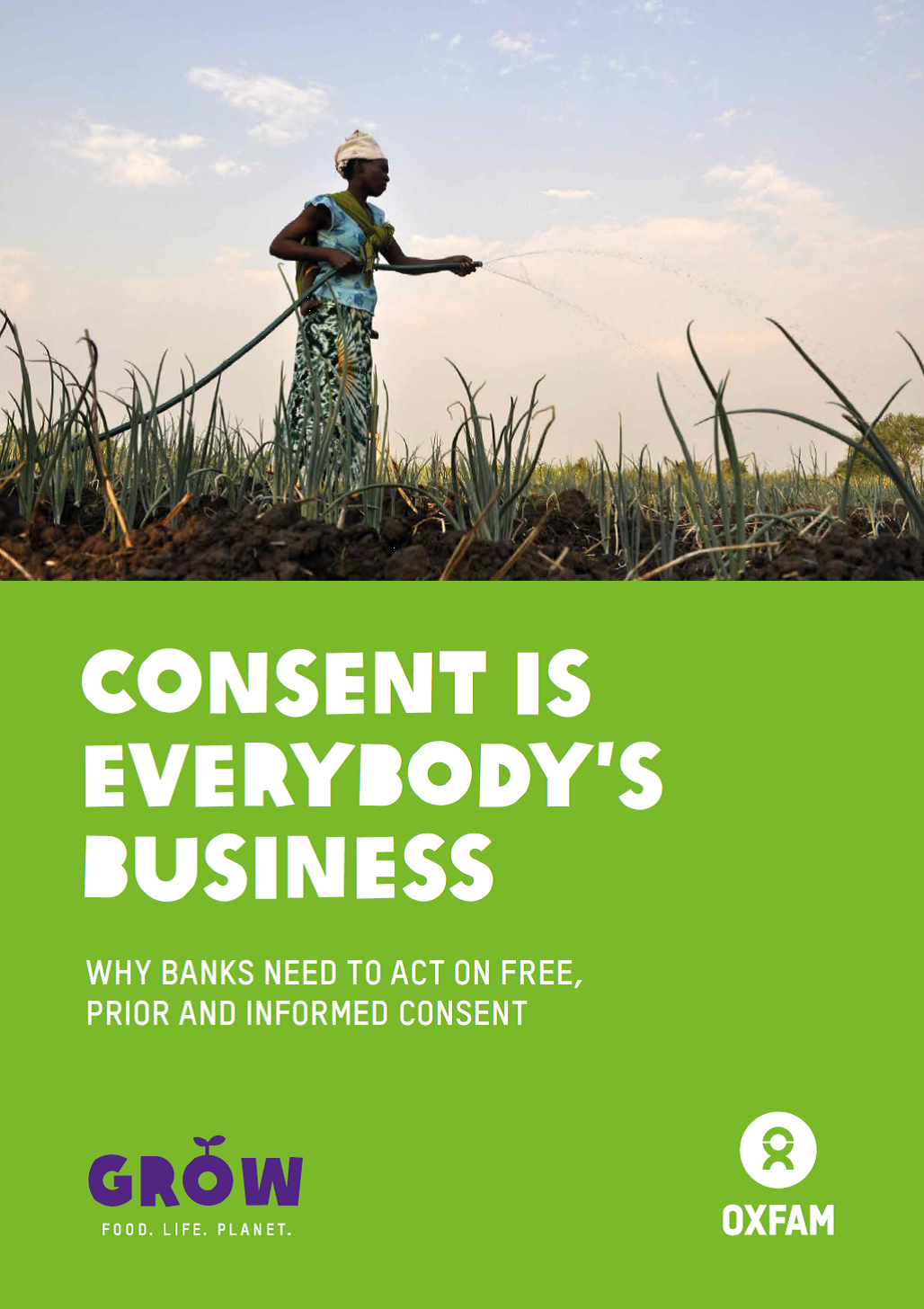Resource information
A community’s choice to give, or withhold, their free, prior and informed consent (FPIC) to a project or activity planned to take place on their land is a recognized right of Indigenous peoples under international law. It is also a best practice principle that applies to all communities affected by projects or activities on the land, water and forests that they rely on.
Increasingly, the banking sector has recognized the importance of free, prior and informed consent. It is incorporated, at least in part, into guidelines and standards such as the Equator Principles. It is also part of the human rights responsibilities and obligations of banks under the UN Guiding Principles on Business and Human Rights (the UNGPs).
This discussion paper seeks to start a conversation on what banks must do to put commitments on FPIC into practice. It acknowledges that there are legitimate questions about how banks can operationalize FPIC commitments. It aims to explain clearly why FPIC is important and outlines the forces that are making it a prominent human rights, environmental and governance issue, including, among other aspects, rapidly escalating violence towards people who peacefully speak out on land-related issues. This paper also highlights how FPIC can help banks ensure that they have obtained an accurate situational analysis and help them manage operational, legal, financial, compliance and reputational risks.


